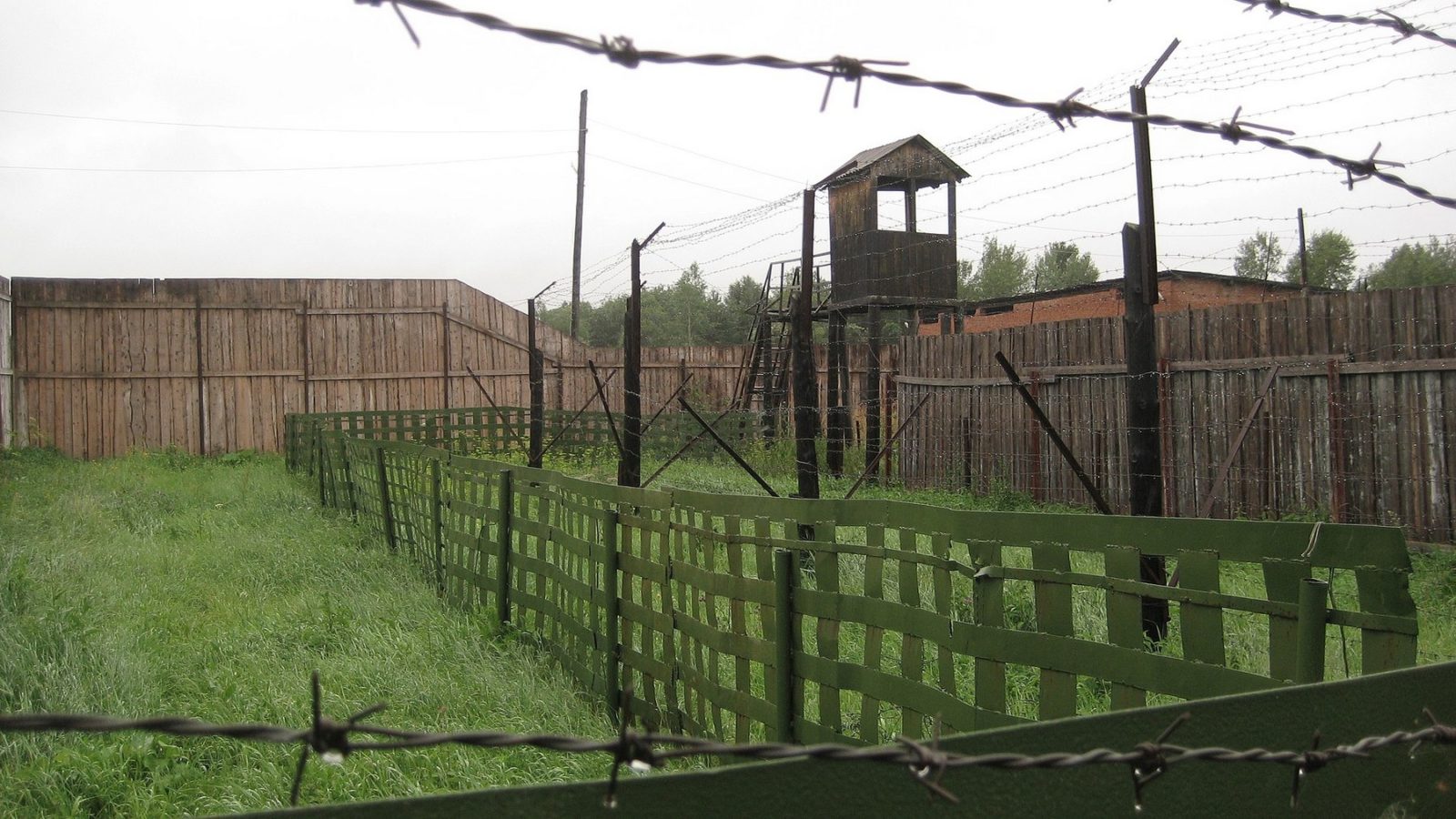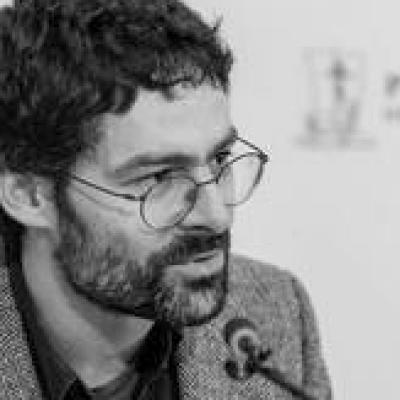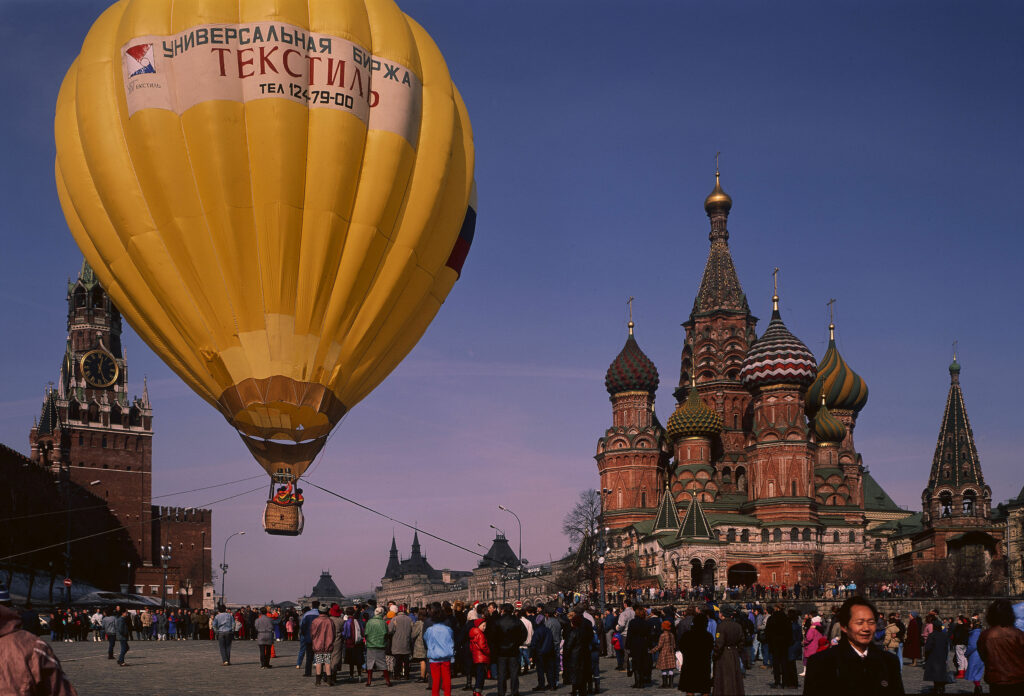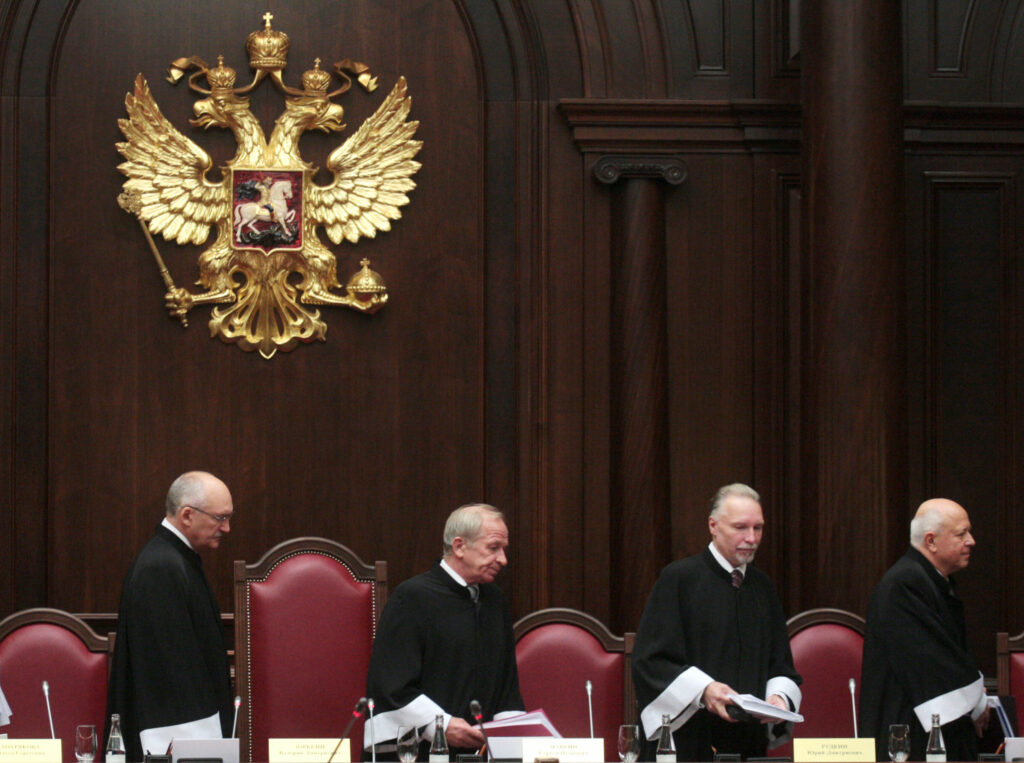A memorial honouring the victims of lynching, which took place in 12 southern U.S. states from 1877 to 1950 was opened on 26 April 2018 in Montgomery, Alabama. It was funded from private donations and erected by Equal Justice Initiative, an NGO established in 1994 by Brian Stephenson, a lawyer and human rights activist from Montgomery. Since 2010, the Equal Justice Initiative has been collecting information about the victims of lynching. These data were first used as an input for a report released in 2015 entitled Lynching in America: Confronting the Legacy of Racial Terror, and then a memorial museum dedicated to the history of slavery and the persecution of Black people.
The memorial is an enormous structure which, on the outside, seems to rest on 800 corten steel monuments. But the incoming visitor sees that the seemingly sturdy and stable structure is, in fact, devoid of a foundation: the monuments hang in the air, symbolising the hanged victims of lynching. The 800 monuments correspond to the number of districts where bloody lynches took place, and each of them bears the engraved names of known victims killed in the respective district (a total of 4,400 names). Perhaps the most interesting part of the memorial is the one outside the central building. The perimeter of the memorial is lined with duplicates of the 800 pillars. The founders of the memorial have suggested that the districts engraved on the pillars could take these pillars and put them in their respective administrative centres, thus erecting memorials to the victims of lynching throughout the American South.
The Montgomery Memorial has not only been cleverly constructed in terms of its concept and architecture: it also cleverly uses the memory of the difficult past as an instrument to influence the present. This reflects a changed view of the role of memorial monuments in principle: they do not so much ‘canonise’ a certain position (usually an official one), as was the case throughout most of the 20th century, but, instead, involve the society and the state in a conversation about the consequences of the past.
It has been customary to talk about overcoming the difficult past in purely moral terms. The instrumental approach to such issues seems cynical and improper. Meanwhile, the rethinking of such events hardly ever happens simply because politicians suddenly realise that slavery, repression, or genocide is ‘not good’. In nearly all cases these topics are raised only because some political forces believe that using this topic will serve their political interests.
Perhaps the best written work on this subject is the book by Elazar Barkan, American historian and political scientist, entitled The Guilt of Nations (2001), devoted to restitution as an instrument by which victims of historical tragedies can start to realise that they are a group with common goals.
Considering the negotiations on German payments to Holocaust victims, U.S. payments to the victims of internment camps, Japan’s payments to victims of sexual slavery (the so-called comfort women), and by former metropolitan centres to indigenous peoples of North America, Hawaii, Australia and New Zealand, Barkan points out that the talks about restitution (the book’s subtitle is Restitution and Negotiating Historical Injustices) often helps victims to realise that they are part of a community, to articulate their interests and begin to fight for them.
According to Barkan, the discussion of such a specific and pragmatic topic as financial restitution allows the victim and the perpetrator to enter into negotiations that would otherwise be impossible for many reasons. It is especially important that the authorities, i.e. the successors of those who committed the crimes, are directly interested in these negotiations. By making concessions to the victims or their descendants, the authorities strengthen their legitimacy both within their own country and beyond. And, finally, such negotiations formulate an interpretation of the past that suits both sides. The negotiations between the Federal Republic of Germany and Israel regarding compensations for the Holocaust, initially perceived in a hostile atmosphere both in Germany and in Israel, but they ultimately not only laid the foundation for a public discussion about the responsibility for Nazi crimes in Germany, but also helped the Holocaust victims in Israel and abroad to shape their own attitude towards these events, and finally became a factor that influenced the formation of the contemporary ideas about the Holocaust.
Negotiations on the compensation for Korean, Filipino, and Chinese women prisoners of Japanese ‘comfort camps’ during the Second World War, which began in the late 1980s, when merely a handful of women found the courage to openly speak about the experience of violence, turned into a large-scale movement for women’s rights by the end of the 1990s, uniting several hundred victims of ‘comfort camps’ in several Asian countries. The Japanese government, which initially refused to acknowledge the responsibility for those crimes, or opted for unofficial apologies and payments on behalf of non-government funds, eventually chose to apologise at the level of the Prime Minister and Parliament and to pay official compensations.
Interestingly, the building of victims’ collective identity can occur after a considerable time after the traumatic events, as was the case with contemporary African Americans, whose self-awareness has largely been determined by the discussions on slavery and its consequences.
Today’s politics and social life has long been composed not only of governments and peoples, but of numerous social groups advocating for their rights, and thus constituting the ‘political fabric’ of modern life. (The existence or absence of such political structures is perhaps the main difference between democracies and dictatorships, but this is a separate major topic.) The discussion about the responsibility for historical crimes, primarily for the Holocaust in Europe and slavery in the United States, has become a very serious resource to shape a new kind of politics. The Montgomery Memorial is one of the examples that inspire this kind of politics.
The Soviet state terror is also a tragedy of global significance and enormous scale, much like the Holocaust and slavery in America. However, this topic is difficult for the authorities and society of today’s Russia. It is either silenced or, exactly because it is painful, turned into a tool of speculation. And yet the experience of the overwhelming majority of countries with a ‘difficult past’ shows that one cannot get away from this conversation: it will resurface sooner or later. Thus, it is even more important to think about the possibilities of making this conversation as beneficial for everyone as possible. If we recognise the memory of the Soviet terror as a resource of bargaining for the past, it may prove to be an important ‘identity building institution’ for the descendants of the victims and for the authorities (if they are interested at all in gaining legitimacy from real history) rather than fake messages and propaganda-driven speculations.
In the light of the above, it is extremely interesting that the history of various kinds of ‘de‑Stalinisation’ actions in the USSR and Russia, already spanning six decades, has seen many developments except for negotiations between the victims and the heirs (successors) of the criminals. ‘Fighting the cult of personality’ in the 1950s was an action to legitimise the reshuffling within the ruling group, and rehabilitation proposed as part of that action was purely superficial. The best evidence, quite in line with Barkan’s argument, is that it did not provide for any compensations. Representatives of the deported peoples did not gain any legal grounds to claim the land that had been taken away from them, and even had to pay for the tickets to travel home.
The 1991 Law on the Rehabilitation of Victims of Political Repressions provided for such compensation ‘at the rate of 75 roubles for each month of imprisonment… but not more than 10,000 roubles.’ However, the act was adopted due to the fact that the need for at least symbolic compensation was recognised by people in the government and the Constitutional Court at the time, and not under the pressure of the victims of repressions or their relatives. The Law on the Monetisation of Benefits, adopted in 2004, went down in history due to unprecedented social unrest that provoked the most serious political crisis of the 2000s. Among the new provisions were important amendments to the Law on Rehabilitation. In particular, the responsibility of the state for moral damage was excluded, the circle of individuals entitled to compensations was reduced, and the required minimum payments were eliminated. Notably, no victims of repressions or their relatives were among those who protested against this law. In the wave of mass rallies and numerous publications defending the rights of those who suffered due to the new law (and who eventually received compensation in a different form), the voice of the ‘Memorial’ society in defence of the rights of the repressed was hardly heard.
The absence of such a conversation is all the more surprising because the subject-matter obviously exists, and the number of people who are directly interested is enormous. According to Memorial, 12 million people are considered to be immediate victims of Soviet terror (inclusion of the victims of ‘labour decrees’ and of the famine provoked by the authorities will elevate this figure to 40 million). In terms of the number of relatives, those who could now claim various kinds of compensation represent a significant percentage of the Russian population, and they are quite capable of defending their rights in the socio-political field. The fact that this is not happening is harmful for both the society and the authorities, driving this extremely traumatic topic into the subconscious. Ultimately, this results in distrust towards political and civil institutions, political and civic apathy and other extremely negative consequences.
Meanwhile, a transformation of the Soviet terror into an ethical, legal and memory issue, similar to that of American slavery or the Holocaust, could greatly contribute to the development of both legal and political culture in Russia and in post-Soviet countries, both in internal and foreign policy.
First of all, it would facilitate the formation of group identity among the victims of terror. Because of the serious foundation of values and legal framework, this group could become a leading force of an independent and responsible civil society. For example, regional museums of the GULAG could turn into important regional structures of such memory and legal self-awareness, as today they are extremely scarce, scattered and lacking a common narrative.
The state is also directly interested in building a narrative about the past that does not drive this topic into the ‘public unconscious’, does not legitimise violence and legal nihilism, and does not exclude a significant portion of citizens from the debate about the country’s history, but enables them to feel like rightful and fully recognised citizens. The fact that the state is conscious of the need to hold a safe conversation about the Soviet terror is evidenced by various facts, such as the opening of the Memorial to the Victims of Repressions in Moscow, the support for the worship of the ‘new martyrs’ and the ‘franchised museum’ called ‘Russia – My History’.
Furthermore, today’s Russia has a clear deficit of ideas on how to improve its image in the international arena. The image of a country that saved Europe from Nazism, which has been overexploited in parallel with aggressive and openly anti-democratic steps, has ceased to be convincing. The ‘dangerous idiot’ strategy is no longer novel, and the demonstration of influence by getting involved in conflicts such as the one in Syria is too costly. Meanwhile, the experience of Germany under Chancellor Konrad Adenauer, for example, clearly shows that a balanced and carefully crafted policy of recognising responsibility for the past (the decision to pay reparations to Israel) is an effective and relatively cheap way to earn partners’ trust in foreign policy. If the Soviet terror could be transformed into such a topic, it would be a good way, without any radical changes in the current policy, to earn the reputation of a responsible country which fits into the ‘guilt politics’ trend that is considered to be ‘in good taste’ among the most developed global powers and Russia is dreaming to be part of that club again. As for the post-Soviet space, where Russia is desperately losing influence, the start of a conversation about responsibility for deportations and national operations is a good way to emerge in the venerable role of a ‘memory champion’ among the neighbours.
One of the most common objections against the rethinking of history is that any reminders of this topic harms the positive self-identification of Russians, making it difficult for them to feel proud of their country and their past. However, one may argue that such positive self-identification is much more harmed by the constant fear of being caught lying, which inevitably accompanies refusals to digest the past and learn from it. According to visitors to the Montgomery Memorial or the National Museum of African American History and Culture, opened in Washington in 2016, the strongest feeling experienced by people leaving those sites is the pride of the greatness of the American people, capable of doing such memory work with their own past.
What the Russian society and the Russian state need today is exactly a foundation for such pride that would be genuine and praiseworthy.










